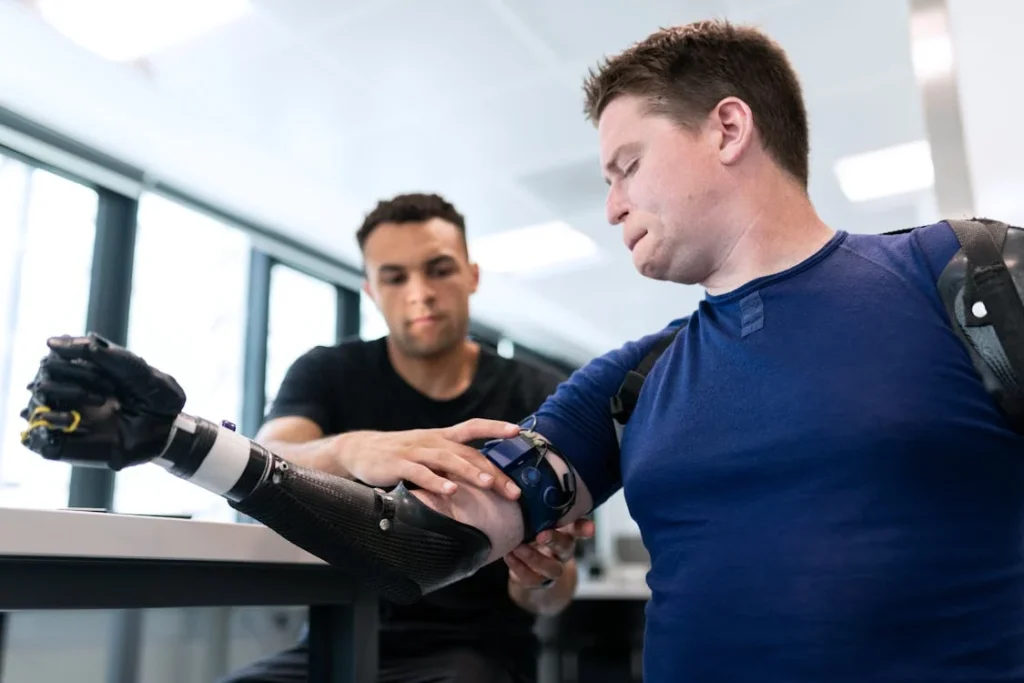Recovering from an amputation is a journey that requires patience, determination, and the right support system. One of the most critical decisions you’ll make during this process is choosing the right rehabilitation center. A good rehabilitation center isn’t just a facility; it’s a place where you’ll gain the tools, support, and confidence needed to adapt to life after amputation.
This decision can feel overwhelming, but with the right approach and clear guidance, you can make a choice that sets you up for long-term success. In this article, we’ll explore everything you need to know about finding the best rehabilitation center for amputees, covering key factors to consider, questions to ask, and how to ensure the center aligns with your goals and needs.
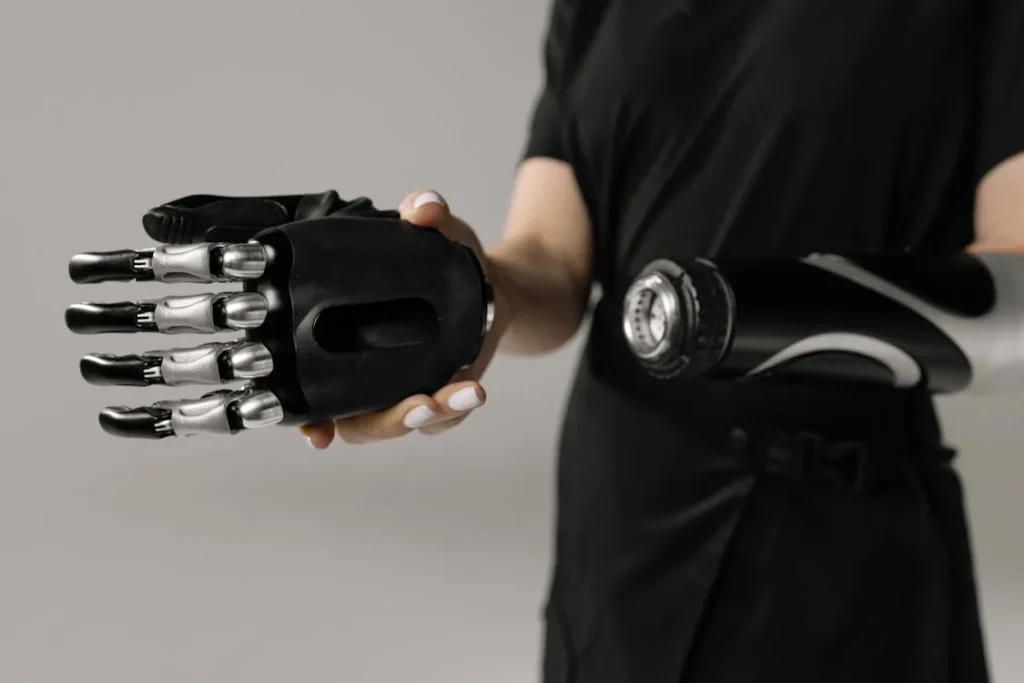
Why Choosing the Right Rehabilitation Center Matters
A rehabilitation center plays a pivotal role in your recovery journey. It’s not just about physical healing; it’s about regaining independence, building confidence, and learning to adapt to a new way of life.
The right center will provide personalized care tailored to your needs, helping you recover faster and more effectively.
Amputees often face unique challenges that go beyond physical therapy. These include managing phantom limb pain, developing balance and coordination, and adapting to prosthetics.
A high-quality rehabilitation center will address these needs comprehensively, offering a combination of medical expertise, emotional support, and practical training.
The environment of the rehabilitation center is also crucial. It should foster positivity, motivation, and a sense of community. Being surrounded by skilled professionals and peers who understand your experience can make a world of difference in how you approach your recovery.
Understanding Your Needs as an Amputee
Before you start looking for a rehabilitation center, it’s important to assess your personal goals and challenges. Are you preparing to use a prosthetic limb?
Do you need help managing pain or building strength? Are you looking for emotional support to cope with the psychological aspects of amputation?
Your needs will shape the type of rehabilitation program that’s right for you. For instance, if you’re planning to use a prosthetic, you’ll want a center that specializes in prosthetic training and has access to state-of-the-art technology.
If emotional support is a priority, consider centers that offer counseling or peer support groups.
It’s also important to consider practical factors, such as the location of the center and whether it offers inpatient or outpatient programs. Accessibility and convenience can significantly impact your ability to commit to and benefit from the program.
Physical Recovery and Specialized Care
Rehabilitation after an amputation requires specialized care that goes beyond general physical therapy.
The right center will have professionals trained specifically in amputee rehabilitation who understand the unique challenges of managing a residual limb, adapting to a prosthetic, and overcoming balance and coordination difficulties.
These experts tailor therapy to your body’s needs, helping you regain strength and mobility effectively.
Physical recovery also includes managing issues such as phantom limb pain, swelling, and scar tissue. A quality rehabilitation center will have the tools and expertise to address these complications, ensuring your recovery is as comfortable as possible.
Their goal is not only to help you move again but to help you do so with ease and confidence, empowering you to regain your independence.
Emotional and Psychological Well-Being
Recovering from an amputation is as much an emotional journey as it is a physical one. The right rehabilitation center will prioritize your mental and emotional well-being, providing support that addresses the psychological impact of limb loss.
Adjusting to life after an amputation can be daunting, and feelings of grief, frustration, or anxiety are common.
A good rehabilitation center offers counseling services, mindfulness training, or support groups where you can connect with others who share similar experiences.
These resources help you process your emotions, build resilience, and cultivate a positive outlook. This emotional strength becomes a cornerstone of your recovery, giving you the confidence to embrace life with optimism and determination.
Adapting to Prosthetics and Everyday Life
For many amputees, the transition to using a prosthetic limb is a pivotal moment in their recovery. A rehabilitation center that specializes in prosthetic training will provide the expertise and tools needed to make this adjustment smoother.
From teaching you how to wear and care for your prosthesis to guiding you through functional tasks like walking or gripping, these centers ensure that your prosthetic becomes a natural extension of your body.
Moreover, the right center helps you regain independence in daily activities. They teach practical skills like getting dressed, preparing meals, or navigating stairs. This focus on real-world application ensures that you leave the center equipped to live confidently and independently.
The Foundation for Long-Term Success
Choosing the right rehabilitation center sets the stage for your long-term recovery and overall quality of life. A supportive and well-equipped facility not only accelerates your immediate recovery but also prepares you for the challenges and opportunities ahead.
The habits, skills, and resilience you develop during your time at the center will serve you for years to come, making this decision one of the most impactful on your journey.
By focusing on specialized care, emotional well-being, and practical skills, the right rehabilitation center becomes a partner in your transformation. It empowers you to take control of your recovery and embrace a fulfilling, independent life.
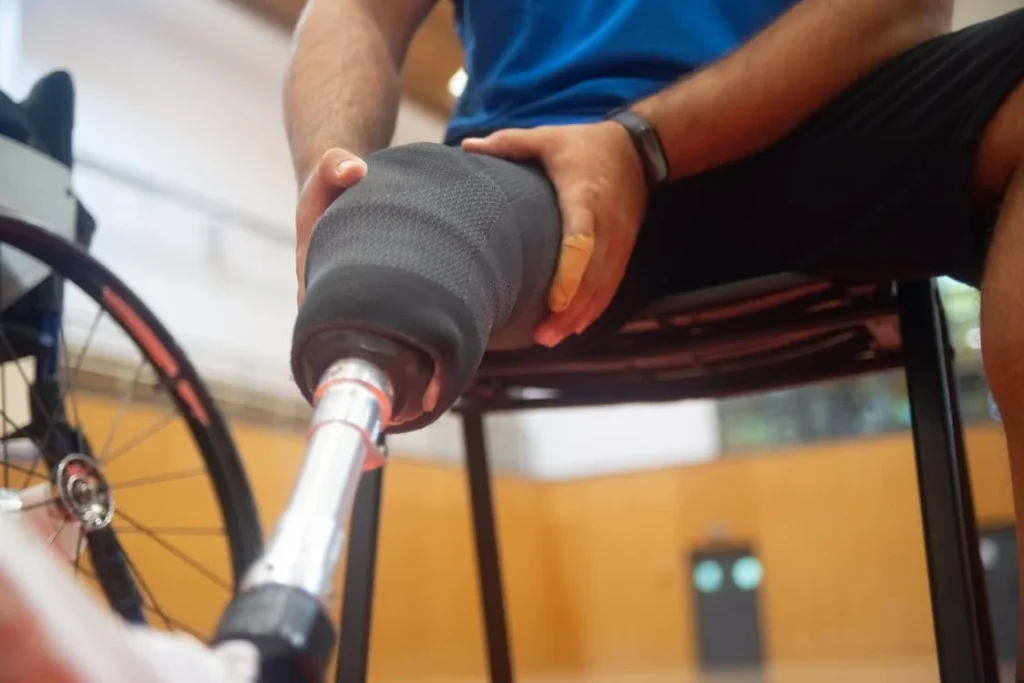
Key Features of a Great Rehabilitation Center
A great rehabilitation center is more than just a facility for physical therapy; it is a comprehensive environment designed to support your recovery holistically.
From expert care to personalized programs, the best centers ensure that every aspect of your healing is addressed. Selecting such a center can make all the difference in your recovery journey, helping you regain independence and confidence.
Expertise in Amputee Rehabilitation
One of the hallmarks of a great rehabilitation center is its specialization in amputee care. Amputees face unique challenges that require a tailored approach, including the management of residual limbs, preparation for prosthetic use, and relearning everyday movements.
Centers that focus on amputee rehabilitation will have therapists who are specifically trained in these areas. Their expertise ensures that the therapy is not only effective but also aligned with the latest advancements in treatment techniques and prosthetic technology.
These centers also understand the complexities of phantom limb pain and can offer innovative therapies to manage it.
Whether through desensitization techniques, mirror therapy, or advanced pain management strategies, their knowledge helps improve your comfort and quality of life.
Comprehensive and Customized Care
Rehabilitation is not a one-size-fits-all process. A great center will assess your unique needs, medical history, and recovery goals to develop a personalized treatment plan.
This plan should evolve with you, adapting as you progress and introducing new challenges to build strength, flexibility, and endurance.
Customization also extends to the equipment and techniques used during therapy. For example, if you are preparing to use a prosthetic limb, the center should provide targeted exercises that simulate real-world scenarios.
They may also incorporate advanced tools like virtual reality or motion analysis to refine your movements and enhance your training.
A comprehensive approach means addressing more than just the physical aspects of recovery. The center should include resources for emotional and mental health support, recognizing that recovery is a holistic journey that involves the mind as much as the body.
Access to Modern Technology
Technology is a powerful ally in rehabilitation, and great centers leverage it to improve outcomes. From advanced prosthetic fittings to gamified rehabilitation tools, technology makes therapy more effective and engaging.
Centers equipped with state-of-the-art gait training machines, sensory feedback devices, or virtual reality platforms can accelerate progress and provide real-time feedback on your movements.
For amputees, this technology is particularly valuable when transitioning to a prosthetic limb. High-tech tools can help you practice balance, coordination, and strength-building in a controlled environment, making the adjustment to a prosthesis smoother and more intuitive.
A Supportive and Encouraging Environment
The atmosphere of a rehabilitation center plays a critical role in your experience. A welcoming and supportive environment fosters positivity and motivation, helping you stay committed to your recovery goals.
Staff members who are empathetic, patient, and encouraging can make a tremendous difference in how you approach each session.
Peer interaction is another vital aspect of a supportive environment. Connecting with others who are on a similar journey allows you to share experiences, exchange tips, and build a sense of community.
This camaraderie often becomes a source of strength and inspiration, reminding you that you are not alone in your challenges.
Focus on Long-Term Success
A great rehabilitation center doesn’t just focus on short-term recovery; it equips you for long-term success.
This includes training you in practical skills for daily life, providing guidance on maintaining your progress at home, and offering follow-up services to ensure continued improvement.
Centers that emphasize lifelong learning and adaptation empower you to navigate your recovery journey confidently, even after formal therapy has ended.
By combining expert care, personalized programs, modern technology, and a supportive environment, a great rehabilitation center becomes an essential partner in your recovery.
It provides the foundation for a smoother transition to life after amputation, helping you achieve your goals and live with independence and dignity.

Evaluating the Environment and Support System
The environment and support system of a rehabilitation center are critical factors that directly impact your recovery journey.
A supportive, well-structured atmosphere not only fosters physical healing but also provides the emotional and psychological encouragement necessary to rebuild confidence and resilience.
When choosing a rehabilitation center, taking the time to assess its environment and the quality of its support system can make a significant difference in your overall experience and outcomes.
The Importance of a Positive Atmosphere
A positive and welcoming atmosphere plays a crucial role in motivating you to stay committed to your recovery. The environment should feel comfortable, safe, and encouraging, creating a space where you can focus on your progress without unnecessary stress or distractions.
A clean, organized, and well-maintained facility sets the tone for professionalism and care, while friendly and approachable staff help you feel valued and supported.
Interactions with the staff often shape your perception of the center. A team that listens to your concerns, celebrates your achievements, and offers constructive feedback fosters a sense of trust and collaboration.
This kind of positive reinforcement can help you push through challenges and remain optimistic about your recovery.
The Role of Peer Support
Rehabilitation is not just about the relationship between you and the therapists; it’s also about building connections with others who share similar experiences.
A great rehabilitation center encourages interaction between patients, creating a sense of community that can be incredibly uplifting.
Sharing your journey with peers who understand your challenges provides emotional validation and practical insights, such as tips for adjusting to a prosthetic limb or managing phantom limb sensations.
Group therapy sessions, social activities, or even casual conversations in shared spaces can foster these connections.
The sense of camaraderie and mutual encouragement from fellow patients can become a powerful motivator, reminding you that you are not alone in your journey.
Accessibility and Convenience
The physical layout and accessibility of the rehabilitation center are also important aspects of its environment. A center that is designed with the needs of amputees in mind will have features such as ramps, elevators, and wide hallways to ensure ease of movement.
These details reflect the center’s commitment to accommodating all patients and creating a space where mobility challenges are minimized.
Location and convenience matter as well. A center that is close to your home or offers flexible scheduling can reduce the stress of commuting, allowing you to focus your energy on your therapy sessions.
If you require inpatient care, assess the comfort and amenities of the residential facilities to ensure a supportive living environment during your stay.
Emotional and Psychological Support
Recovery after an amputation often comes with emotional challenges, and a strong support system is vital for navigating these hurdles. A rehabilitation center that integrates psychological care into its programs demonstrates a holistic approach to healing.
This may include one-on-one counseling, group therapy, or mindfulness training, all of which help you build resilience and manage the emotional aspects of recovery.
The presence of empathetic staff who understand the mental toll of amputation adds another layer of support. They can offer encouragement during difficult moments, celebrate your milestones, and help you develop strategies to cope with setbacks.
Knowing that you have a team cheering for your success can instill confidence and determination.
Long-Term Engagement and Follow-Up
A great rehabilitation center doesn’t just focus on your immediate recovery; it remains invested in your long-term success. Evaluating how the center provides ongoing support, such as follow-up consultations or resources for continued therapy, is crucial.
Centers that maintain an active relationship with their patients even after formal programs end show a genuine commitment to your well-being.
By assessing the environment and support system of a rehabilitation center, you can ensure that it aligns with your needs and fosters an atmosphere of growth and encouragement.
A supportive environment not only enhances your physical recovery but also empowers you emotionally, equipping you with the strength and confidence to embrace life after amputation.

Questions to Ask When Choosing a Rehabilitation Center
Selecting the right rehabilitation center requires careful research and asking the right questions. These inquiries will help you evaluate whether a center meets your needs and aligns with your recovery goals.
What Services Are Offered?
Start by understanding the scope of services provided by the center. Ask about their expertise in working with amputees and whether they offer specialized programs such as prosthetic training, pain management, or balance and coordination exercises.
Inquire about any additional services like occupational therapy, psychological support, or recreational activities that could enhance your recovery experience.
You should also check whether the center provides a multidisciplinary approach. A team that includes physical therapists, occupational therapists, prosthetists, and mental health professionals ensures that every aspect of your rehabilitation is addressed.
What Is the Staff’s Level of Expertise?
The qualifications and experience of the staff play a crucial role in the quality of care you receive. Ask about the training and certifications of the therapists, particularly in limb loss rehabilitation.
Experienced professionals who have worked extensively with amputees are better equipped to understand the nuances of your recovery journey.
It’s also helpful to inquire about the patient-to-staff ratio. A lower ratio often means more personalized attention, which can make a significant difference in your progress.
What Are the Facility’s Amenities and Equipment?
Modern amenities and equipment can greatly enhance the rehabilitation process. Ask about the types of tools and technology available, such as prosthetic fittings, gait training equipment, or virtual reality-based therapy.
A well-equipped facility ensures that you have access to the best resources for your recovery.
Additionally, evaluate the physical layout of the center. Is it accessible and easy to navigate? Are there accommodations for individuals with limited mobility? A comfortable and functional environment contributes to a smoother rehabilitation experience.
What Is the Center’s Success Rate?
Learning about the center’s track record can provide valuable insights into its effectiveness. Ask for testimonials or case studies of previous patients who have undergone rehabilitation there.
If possible, speak directly with former patients to get an honest perspective on their experience and outcomes.
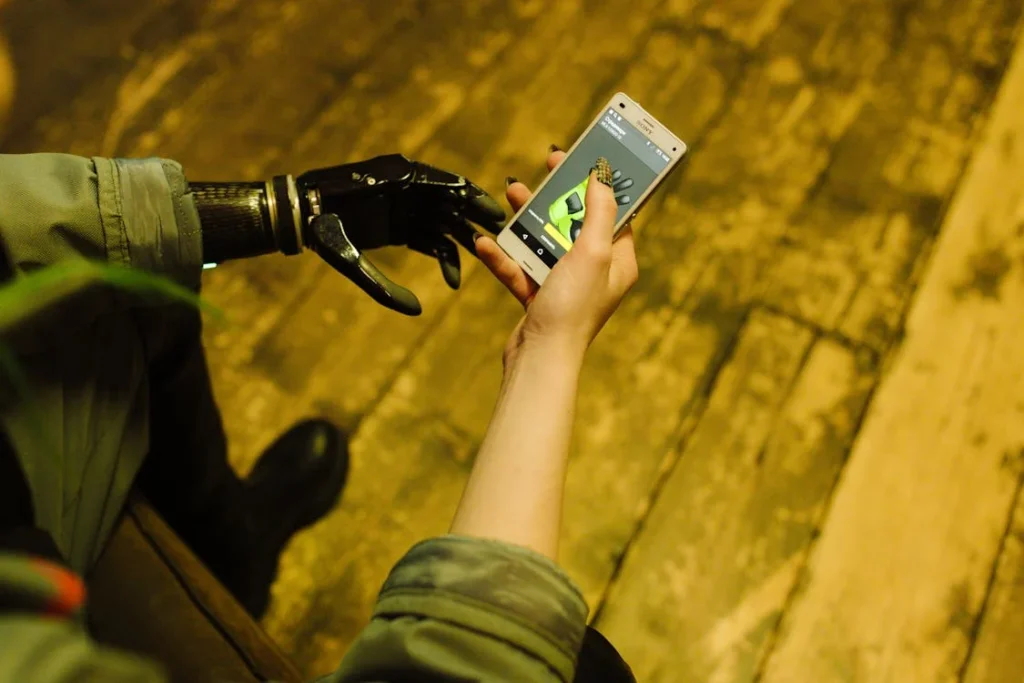
Making the Final Decision
Choosing the right rehabilitation center is a significant milestone in your recovery journey.
After thoroughly researching your options, visiting facilities, and assessing the programs and environment, the final decision should be guided by a combination of practical considerations and personal intuition.
This is the moment to evaluate whether a particular center aligns with your needs, recovery goals, and overall expectations.
Trusting Your Instincts
While objective factors like expertise, facilities, and location are crucial, your gut feeling about a rehabilitation center is equally important. The center should feel like a place where you can thrive.
Pay attention to how the staff interacts with you and whether they demonstrate genuine care and interest in your recovery.
A warm, empathetic atmosphere can have a profound impact on your experience, giving you the confidence to take on challenges and stay motivated throughout the process.
Reflect on your visits or conversations with the staff. Did they listen carefully to your concerns? Did they answer your questions thoroughly?
A center that prioritizes open communication and treats you as an individual rather than just another patient is more likely to meet your expectations and support your journey effectively.
Aligning with Your Recovery Goals
The final decision should be based on how well the center’s offerings align with your personal recovery goals.
Consider the specific challenges you face—whether it’s adapting to a prosthetic limb, managing pain, or improving balance and coordination—and ensure that the center has the expertise and resources to address them comprehensively.
If you value emotional and psychological support alongside physical rehabilitation, prioritize a center that integrates mental health services into its programs.
For those looking to use advanced prosthetic devices, a center with cutting-edge technology and experienced prosthetists will be essential. Think about what matters most to you and choose a center that matches your priorities.
Evaluating Practical Factors
Practical considerations play a key role in making the final decision. Accessibility, scheduling flexibility, and costs are all important to ensure that your therapy sessions are convenient and sustainable.
A center that is difficult to reach or has inflexible timings might add unnecessary stress, while one that works with your schedule and location will make attending sessions more manageable.
Additionally, consider the financial aspects of your decision. Does the center accept your insurance or offer affordable payment plans? Transparency about costs and coverage ensures that you can commit to the program without unexpected financial strain.
Seeking Support in the Decision-Making Process
Deciding on a rehabilitation center doesn’t have to be done in isolation. Seek input from family members, friends, or even your healthcare providers. Their perspectives can provide valuable insights and help you weigh the pros and cons of each option.
If possible, speak to former patients of the center to get firsthand accounts of their experiences. This can offer clarity about what you can expect and whether the center is truly the right fit for you.
Feeling Confident in Your Choice
Ultimately, your decision should leave you feeling confident and hopeful about the road ahead. The rehabilitation center you choose will play a crucial role in shaping your recovery experience, so it’s important to feel secure in your choice.
Trust that you’ve done your due diligence, gathered the necessary information, and chosen a place that aligns with your goals and values.
Making the final decision is not just about selecting a facility—it’s about committing to your recovery journey with the best possible support system.
With the right rehabilitation center, you can look forward to regaining independence, building strength, and embracing a fulfilling future.
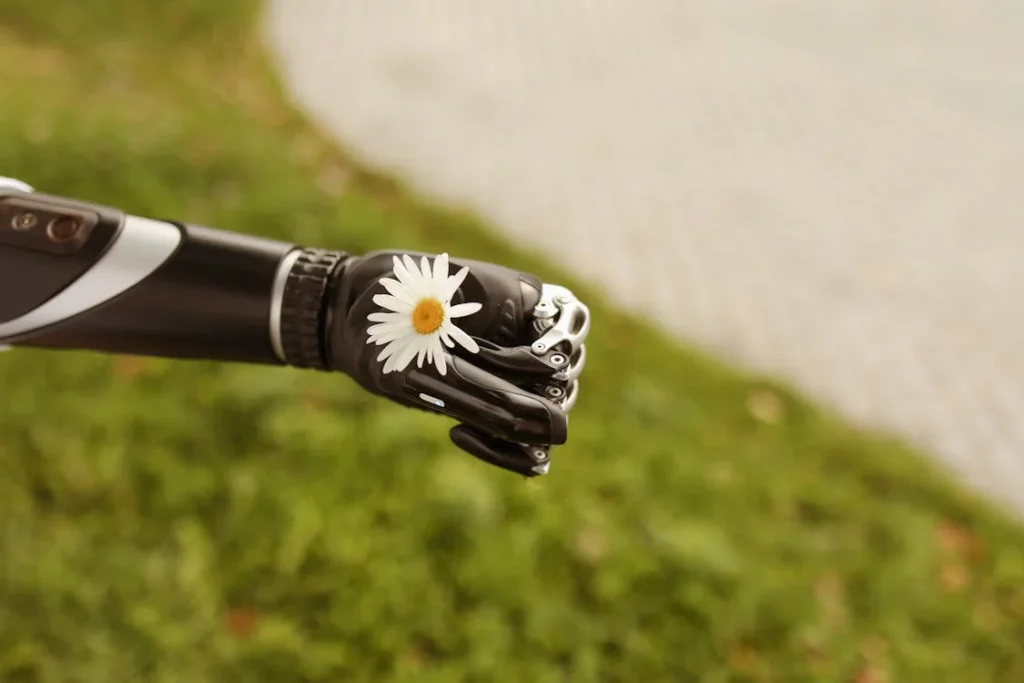
Conclusion
Choosing the right rehabilitation center is a vital step in the recovery journey for amputees. It’s not just about the services provided; it’s about finding a place that understands your unique needs, empowers you to achieve your goals, and offers a supportive, encouraging environment. The right center will combine expert care, advanced technology, and personalized attention to help you regain independence and confidence.
At Robobionics, we are committed to supporting amputees through innovative prosthetic solutions and partnerships with leading rehabilitation programs. Your recovery is not just about adapting—it’s about thriving. Take the time to evaluate your options, ask the right questions, and trust your instincts. Recovery is a journey, but with the right rehabilitation center, you can take every step with strength and purpose. Contact us to learn more about how we can support you in choosing the best path forward.



